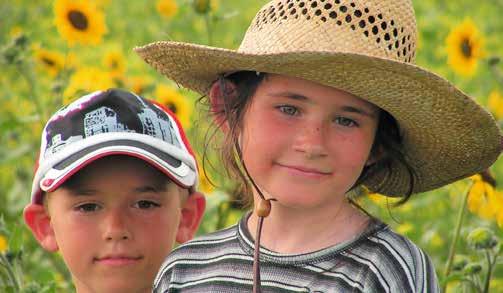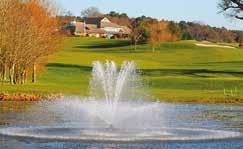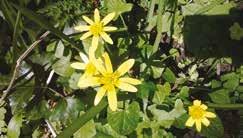Wildlife News
12
Talking about Wildlife...
Dorset: A good spot for wildlife As 2020 unfolds, Dorset Wildlife Trust is asking for help from the residents of Dorset, to keep track of wildlife on their doorsteps. The Species of the Month species list for 2020 is shaping up to be a really interes�ng one, with mammals, plants, birds and insects to spot in your garden, or local green spaces (including nature reserves!). All you need to do to help is let us know when you see something. For February, we’re asking for sigh�ngs of the lesser celandine flower – a true sign that spring is on its way. This flower is in the bu�ercup family and is one of the first spring woodland flowers to appear. It’s also a really important early source of nectar for emerging pollinators, such as queen bumblebees, who will need an energy-boost! A�er flowering in May, the plant enters a six-month dormancy. Lesser celandine flowers close at night and this is believed to reduce the rate of grazing by deer and slugs. They also close when it rains for protec�on – which is why they have been believed to predict the weather! They can be found along streams, in hedgerows and in gardens. Looking ahead to March, as spring starts to pop up everywhere, we’re looking for sigh�ngs of the blackcap. With one of the most melodic bird songs, the blackcap is very dis�nc�ve, and are nicknamed the ‘mock nigh�ngale’ due to its
Lesser Celandine
Blackcap
Photo: Ken Dolbear
varied song. Not surprisingly, the males have a black cap, and the females have a brown cap. They have a rich, flute-like song and can o�en be heard calling from dense scrub in early summer. They used to be considered a summer visitor, but they are fast becoming known as a resident bird, spending winter in the UK more and more. Some ‘stop over’ in the UK, rather than migra�ng all the way to the Mediterranean, and possible reasons for this include milder winters and supplementary garden feeding in the UK. Although a woodland bird, blackcaps are frequently seen in gardens and parks, or anywhere with good shrub cover. We hope you’ll enjoy spo�ng new wildlife in 2020 – le�ng us know what you see is useful informa�on for conserva�onists in Dorset who can iden�fy trends in popula�ons and help create more informed management plans for wild spaces where you live. If you would like to take part in the Species of the Month, you can sign up to receive the enewsle�er and find out which species we’re looking for at www.dorsetwildlifetrust.org.uk/ species-month. By Sally Welbourn
To advertise in The Ferndown & West Parley Directory, please call: 01202 894397












